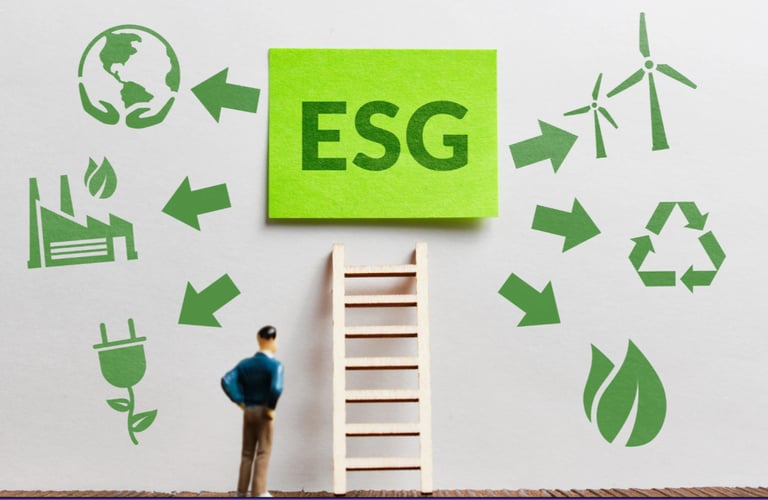Is ESG a Compliance Burden or an Edge for Malaysian Companies?
5/14/20252 min read


In Malaysia’s fast-evolving sustainability landscape, Environmental, Social, and Governance (ESG) has become more than a buzzword. It’s now central to how businesses build long-term resilience, credibility, and value.
The government’s net-zero 2050 target, renewable energy goals (31% by 2025), and enhanced climate disclosure requirements under Bursa Malaysia’s Task Force on Climate-related Financial Disclosures (TCFD) roadmap are reshaping expectations, not just for listed firms, but for all businesses.
With the National Sustainability Reporting Framework (NSRF) launching by end-2024, and Bank Negara Malaysia upgrading its Climate Change and Principle-based Taxonomy (CCPT), the pressure is rising.
But here's the pivot: ESG is not just a compliance issue. It’s increasingly a strategic lever for businesses to future-proof themselves.
💡 Global Capital is Moving Fast
According to Bloomberg, global ESG assets surpassed USD 30 trillion in 2022, and are projected to exceed USD 40 trillion by 2030. Investor sentiment, financing decisions, and consumer choices are now more heavily influenced by green finance trends and climate-related investment signals than ever before.
🇲🇾 Malaysian Companies Already Leading the Way
Here are some real-world ESG implementation case studies from Malaysia
TNB (Tenaga Nasional) is expanding its green energy portfolio, attracting both domestic and international capital while boosting investor confidence and long-term valuation.
Green Sukuk (Islamic green bonds) have emerged as a viable corporate financing channel drawing significant global interest.
FGV Holdings has built biogas and bio-compressed natural gas facilities that reduce over 100,000 tonnes of CO₂annually while generating millions in clean energy revenue. Proof that carbon reduction can also be income generation.
BioLoop, a Malaysian biotech company, upcycles palm oil waste using black soldier fly larvae into animal feed and organic fertiliser, processing 8,000+ tonnes of waste, creating jobs and unlocking new revenue streams.
👩💼 ESG Attracts Talent, Not Just Investors
Talent mobility is also shifting. Millennials and Gen Z are increasingly selecting employers based on their sustainability values.
A study by Robert Walters found:
31% of professionals would reject a job if the employer's climate values didn’t align with theirs.
51% would only consider companies with clear ESG commitments.
ESG isn’t just about public image, it strengthens employee loyalty, retention, and internal cohesion, all of which impact operational effectiveness. This shift is reshaping employer branding strategies and expectations for a more sustainable workplace.
🔧 There are Challenges, but They are Surmountable
The ESG journey comes with hurdles: upfront investment, lack of internal expertise, data readiness. But these are addressable:
Tap into green financing schemes and tax incentives
Partner with universities to build talent pipelines
Integrate ESG performance metrics into business strategy and KPIs
🕰️ Early Movers Will Benefit Most
ESG is both a compliance necessity and a lever for value creation. Companies that embed it into their core strategy and take a long-term view are more likely to succeed amid market shifts and regulatory changes tied to the net zero transition and sustainability transformation.
As the saying goes: “A boat sailing upstream must keep moving or be swept back.” In the ESG era, early action is not just wise, it’s an edge.
📢 Your Thoughts?
Are you seeing ESG as a cost or a catalyst? I'd love to hear how you're navigating this transition.
✍️ This article is adapted from our founder's recent column in the Nan Yang Siang Pau Chinese press, on how ESG is evolving in Malaysia, from compliance pressure to strategic potential. For friends who prefer to read in Chinese, feel free to check out the original version in the link below:
https://www.enanyang.my/esg/永续发展合规成本或竞争优势欧阳育婉
Get in Touch
connect@stratxadvisory.com
Follow Us
Subscribe to our mailing list
(+60) 11 1108 7005
